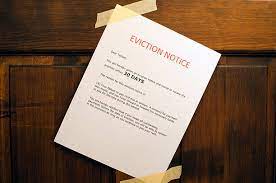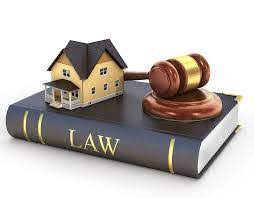
When it comes to buying or selling a home, a real estate lawyer is a valuable asset to have on your side. Not only do they handle all the legal paperwork, but they can also provide you with advice and guidance throughout the process. But how do you go about selecting the right real estate lawyer for your needs?
In this blog post, we’ll look at the key steps you need to take to find the best real estate lawyer for your specific situation.
Factors to consider when selecting a real estate lawyer
Selecting the right real estate lawyer is essential when it comes to buying or selling property. A real estate lawyer helps you understand the legal aspects of property transactions and ensures that all paperwork is in order. With so many lawyers offering their services, it can be overwhelming to choose the right one. Here are some factors to consider when selecting a real estate lawyer.
Experience: Real estate law is complex, so it's crucial to hire an attorney with experience in the field. Find out how long they've been practicing real estate law and ask if they have worked on cases similar to yours.
Credentials and Certifications: Look for lawyers who have certifications in real estate law, such as board certifications or specialized training. These certifications demonstrate their commitment to the practice of real estate law and their knowledge of the field.
Reviews and Testimonials: Take the time to read online reviews and testimonials from previous clients. These reviews can provide insight into the attorney's level of professionalism and success in handling real estate transactions.
Communication and Availability: Good communication between you and your lawyer is essential, so choose an attorney who is accessible and responsive. Make sure they are willing to answer your questions and explain the legal jargon in a way that you understand.
Fees and Payment Structure: Different lawyers have different fee structures, so be sure to discuss the cost of their services upfront. Some lawyers charge by the hour, while others charge a flat fee. Find out how they bill their clients and whether there are any hidden fees.
By considering these factors when selecting a real estate lawyer, you can find an attorney who is experienced, knowledgeable, and communicative, ensuring a smooth and successful real estate transaction.
Benefits of Selecting Real Estate Lawyer?
If you are planning to buy, sell, or lease a property, hiring a real estate lawyer can offer several benefits. Real estate transactions are complex and can be filled with potential pitfalls that can result in financial losses or legal disputes. With the guidance and support of a skilled real estate lawyer, you can navigate the transaction process with greater ease and confidence. Here are some of the benefits of selecting a real estate lawyer:
1. Protection of your interests: A real estate lawyer will represent your interests throughout the transaction process and ensure that all legal requirements and obligations are met.
2. Expert advice and guidance: Real estate transactions involve complex legal issues, and a lawyer can provide expert advice and guidance on matters such as zoning laws, contracts, and titles.
3. Mitigation of risks: A real estate lawyer can identify and mitigate potential risks, such as hidden liabilities or environmental issues, before they become a problem.
4. Smooth transaction process: Real estate transactions involve a lot of paperwork, negotiations, and deadlines. A lawyer can manage these processes efficiently and ensure that everything runs smoothly.
5. Legal representation: If a dispute arises, a real estate lawyer can provide legal representation and defend your interests in court.
In summary, a real estate lawyer can offer valuable legal guidance and support throughout the transaction process, protect your interests, and mitigate potential risks. When selecting a real estate lawyer, it is important to consider their experience, credentials, communication skills, and fees to ensure that you find the best match for your needs.
Researching potential candidates
When selecting a real estate lawyer, the first step is to research potential candidates. Start by asking friends, family, or colleagues for recommendations. Alternatively, you can search for lawyers online or through professional associations.
Once you have a list of potential candidates, take some time to research each one individually. Look for their website and social media profiles to learn more about their experience and areas of expertise. You can also read articles or publications they have authored or been featured in to gain more insight into their knowledge of real estate law.
Another valuable resource is the state bar association website, which allows you to verify a lawyer’s license and disciplinary history. You can also find information about their education, years of experience, and any certifications or specializations.
Researching potential candidates is an essential step in selecting the right real estate lawyer for your needs. It can help you identify lawyers with experience in your specific legal issue and ensure they are in good standing with the state bar association. Taking the time to thoroughly research your options will help you make an informed decision about who to hire.
Evaluating experience and expertise
When it comes to selecting a real estate lawyer, evaluating their experience and expertise is crucial. You want to ensure that the lawyer you choose has a deep understanding of real estate law and has successfully handled cases similar to yours in the past.
One way to evaluate their experience is by asking about their years in practice. A lawyer who has been practicing real estate law for a significant amount of time is likely to have encountered a wide range of issues and can navigate any challenges that may arise during your transaction.
Additionally, it is important to inquire about their expertise in real estate law. Ask about their track record in handling cases related to your specific needs. For example, if you are buying commercial property, you want a lawyer who has experience in commercial real estate transactions.
Another aspect to consider is their involvement in professional organizations or associations. This can indicate their commitment to staying up to date with the latest developments in real estate law.
Lastly, don't be afraid to ask for references or examples of their previous work. Speaking with past clients or reviewing case studies can provide valuable insights into their capabilities and successes.
Remember, evaluating the experience and expertise of a real estate lawyer is a critical step in finding the right professional to represent you in your real estate transaction.
Checking credentials and certifications
Once you have narrowed down your list of potential real estate lawyers, the next step is to check their credentials and certifications. This is crucial in ensuring that you are working with a professional who has the necessary qualifications to handle your legal matters.
First, you need to ensure that the lawyer is licensed to practice law in your state. This can be done by contacting the state bar association or checking their website. You should also check whether the lawyer has any disciplinary history or malpractice claims.
Additionally, you can check whether the lawyer has any specialized certifications or memberships in professional organizations related to real estate law. This can include the American Bar Association's Section of Real Property, Trust and Estate Law or the National Association of Real Estate Lawyers.
While these credentials and certifications may not guarantee the lawyer's competency, they do indicate a certain level of dedication and expertise in the field. As such, it is important to take them into consideration when selecting a real estate lawyer.
Reviewing client testimonials and reviews
Another crucial aspect of selecting a real estate lawyer is reviewing client testimonials and reviews. These can give you a better understanding of the lawyer's reputation and the quality of their services. You can look for testimonials and reviews on the lawyer's website, social media platforms, or legal directories.
Take the time to read through both positive and negative reviews to get a complete picture of the lawyer's strengths and weaknesses. Consider whether clients had similar issues to yours and if the lawyer was able to effectively resolve them. You may also want to check if the lawyer has any history of disciplinary action.
However, keep in mind that not all reviews may be genuine or unbiased. Some reviews may be from friends or family members of the lawyer, while others may be from disgruntled clients. Use your judgment and consider multiple sources of information when making your decision.
Ultimately, reviewing client testimonials and reviews can be a helpful tool in selecting a real estate lawyer, but it should be just one aspect of your research and evaluation process.
Assessing communication and availability
When selecting a real estate lawyer, it is important to assess their communication skills and availability. Effective communication is essential for a successful attorney-client relationship, as your lawyer needs to understand your goals, provide advice, and keep you informed of the status of your case.
You want to ensure that your lawyer is easy to reach and responds promptly to your calls and emails. It can be frustrating if your lawyer is difficult to contact, particularly if you have urgent questions or concerns about your case. It is a good idea to ask about their preferred mode of communication and how quickly they typically respond.
You should also consider their availability. Do they have multiple cases that may interfere with their ability to focus on your case? Are they willing to meet with you outside of regular business hours if necessary? A good lawyer should be able to dedicate the time and resources necessary to achieve your objectives.
Finally, it is important to ensure that your lawyer explains legal concepts and procedures in a way that you can understand. They should be patient and willing to answer your questions and concerns. A lawyer who communicates well and is readily available can make a significant difference in your real estate transaction.
Discussing fees and payment structure
Once you have evaluated a few potential candidates and determined their level of experience, expertise, and reputation, the next factor to consider is the cost of their services. It is important to have an open and honest conversation with the real estate lawyer about their fees and payment structure.
Ask for a breakdown of all the expenses associated with the legal services you require, such as hourly rates, flat fees, or retainer fees. Clarify any additional expenses, such as court fees, filing fees, or expenses for research or outside expertise.
Some lawyers may also offer alternative payment arrangements, such as contingency fees, which are only paid if a case is won. Others may offer reduced fees for certain types of clients or cases.
Discussing fees and payment structure upfront can help avoid misunderstandings or surprises later on in the process. A reputable lawyer should be transparent and upfront about their fees and payment structure, and should not hesitate to answer any questions you may have.
Remember that while cost is an important factor, it should not be the only factor you consider when selecting a real estate lawyer. The level of experience, expertise, and reputation of a lawyer can ultimately impact the outcome of your case and be worth the investment in their services.
Arranging initial consultations
Once you have narrowed down your list of potential real estate lawyers, the next step is to arrange initial consultations. This meeting will give you an opportunity to ask questions, discuss your needs, and assess whether the lawyer is the right fit for your case.
When scheduling the consultation, ask whether it will be free of charge and how long it is likely to last. You should also provide the lawyer with a brief summary of your case or concerns beforehand, so they can be prepared to discuss your situation in detail.
During the consultation, ask the lawyer about their approach to handling cases similar to yours, their expected timeline for resolving your issue, and their level of involvement in the process. You should also take note of how the lawyer communicates and whether you feel comfortable working with them.
After the consultation, take some time to reflect on your interaction with the lawyer. Ask yourself whether you felt heard, whether you understood their approach and advice, and whether you believe they can achieve your desired outcome. Ultimately, you should choose a lawyer who inspires confidence, listens attentively, and communicates clearly and honestly with you.
Making a final decision
After considering all the factors and completing the necessary research and evaluations, it's time to make a final decision on selecting a real estate lawyer. It's important to remember that choosing the right lawyer is crucial for the success of your real estate transactions.
Once you have gathered all the information and have a clear understanding of each potential candidate's experience, expertise, credentials, and client testimonials, you can start comparing and weighing your options. Look for a lawyer who not only has the relevant experience but also has a track record of successful real estate transactions.
Additionally, consider the lawyer's communication skills and availability. It's essential to have open and clear communication throughout the entire process. Make sure the lawyer is responsive and accessible, as this will be crucial in resolving any issues or concerns that may arise during the real estate transaction.
Next, discuss fees and payment structures. Get a clear understanding of the lawyer's billing methods, such as hourly rates or flat fees, and ensure it aligns with your budget and needs. Avoid selecting a lawyer solely based on price, as quality and expertise should be the primary focus.
Lastly, arrange initial consultations with your top candidates. This will allow you to meet them in person and ask any additional questions you may have. Use this opportunity to assess their personality and see if they are a good fit for you.
Making the final decision on a real estate lawyer should be based on a combination of factors, including experience, expertise, credentials, client testimonials, communication skills, availability, and budget. By considering all these aspects and making an informed decision, you can feel confident that you have selected the right lawyer to handle your real estate transactions.























